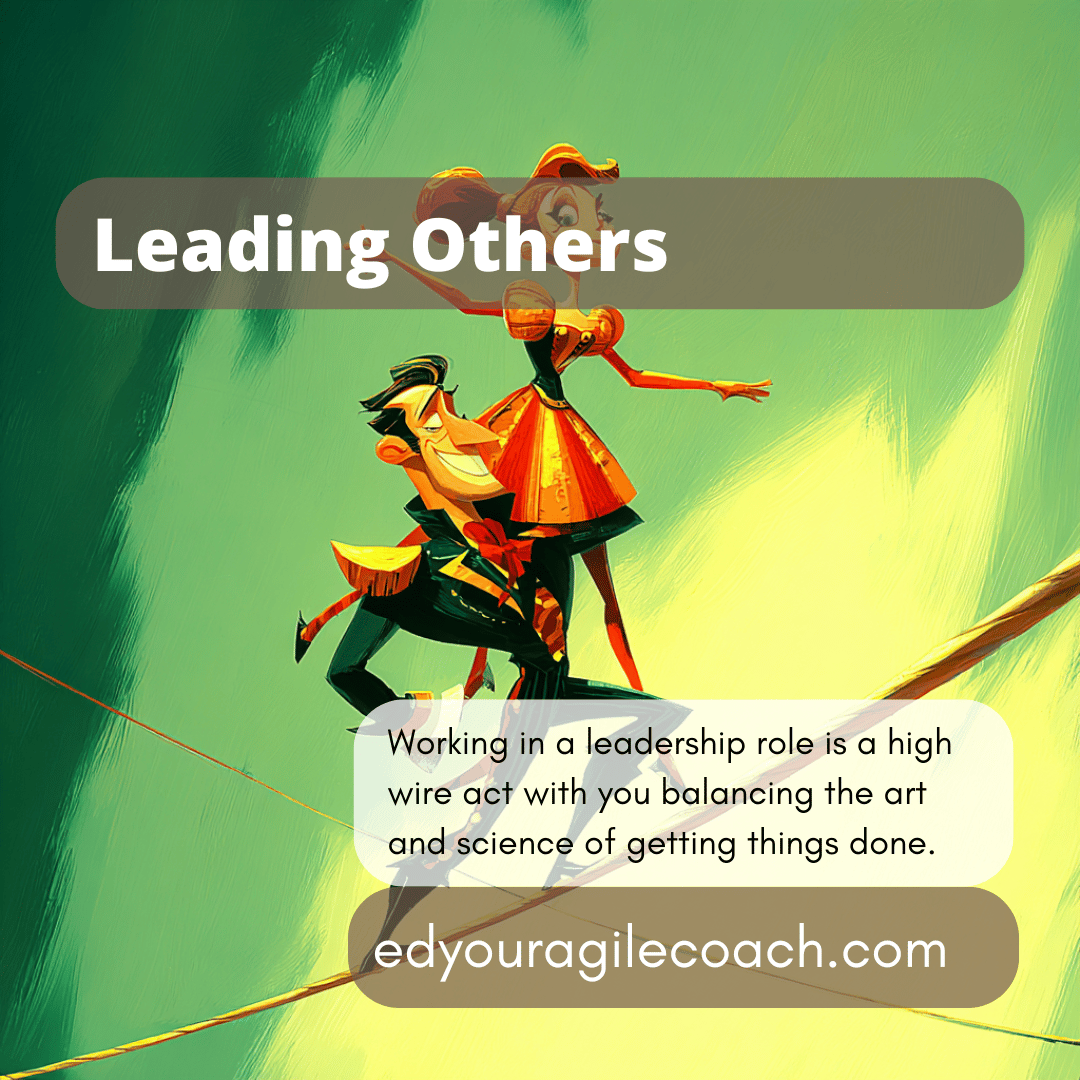From Manosphere Rabbit Holes to Real-World Role Models

I had a birthday this week, and how many people reached out to wish me well surprised me. Moments like that put into perspective how much your life impacts others. It is a nice realization. Throughout my career, I have stumbled through quite a few misadventures, and now I pour my energy into helping others steer clear of the same pitfalls.
I am not a typical business person. My background is in liberal arts, and I cultivated my leadership skills in debate, speech, and media instead of athletics. My experiences give me a unique lens through which I view problems, allowing me to guide others toward the right solutions. It also means that I am not traditionally masculine compared to other business leaders. While some might dismiss me as a loser compared to many public figures, I see my journey differently. The truth is the current model of masculinity being pushed forward is fragile and doesn't build anything positive in the business world. Today, I want to take some time to discuss it.
The May 2025 special issue of Bloomberg BusinessWeek devoted an entire section to what they call "The Man Meltdown." Author Rachel Giese, who is raising a son, points out that traditional notions of masculine archetypes, which could be patronizing and oppressive, also contained a sense of dignity, honor, and accountability, which provided men and boys purpose in their communities. She says, "Those attitudes seem to have been replaced by a new kind of manhood, a chaotic one, borne of the vast online space known as the manosphere."
Describing the manosphere is as tricky as explaining the term 'woke.' You mention the name, and everyone has their concept of what the term means without truly understanding. I liken it to attempting to mail gelatin mold to a wall. For this article, I will lump all the content directed toward young men and boys online from blogs, podcasts, and YouTube channels promoting self-improvement, physical fitness, and male companionship. These places are safe spaces where young men can go looking for friendship and connection when the challenges of the outside world are overbearing.
Speaking from personal experience, growing up is an unpleasant process. The pressures and responsibilities of adulthood, combined with the physical and mental changes you are enduring, create a volatile mixture of self-doubt, frustration, and pressure to conform. It also does not help that cultural pressures force young men and boys to repress their feelings. It's disheartening that vulnerability is often seen as a weakness to exploit rather than a quality deserving of respect.
Growing up, I was fortunate. My father engaged with my family. Strong male role models in Boy Scouts of America and JROTC provided me with encouragement and direction. Finally, I had a creative outlet in speech, debate, and writing. These factors made me a non-traditional teenager and someone bookish, eccentric, and striving. It also singled me out for abuse and ridicule.
I can count my blessing that I grew up in the 1980's. It was a more conservative time, but I did not have to fight my battles on social media. The hallways of my high school and the streets of my community were difficult enough. Unfortunately, young men and boys face that situation today and crave connection. Naturally, enterprising people attempt to fill that void for fun and profit.
The trouble with this trend is that, just like many things online, it often leads you down rabbit holes toward more extreme content. A video on exercise leads to a sales pitch for nutritional supplements featuring an influencer who talks about how women are parasites. So notions about women, relationships, work, and education often get distorted in a funhouse mirror of performative machismo.
It is not helpful for business because if there is only one way to be masculine or a leader, it limits perspectives and stifles conversations to improve organizations. If the only way to be a man is to bulk up, wear gold chains, and project 'violent energy,' the only people you will influence are people who feel the same way. It will also engender eye rolls and contempt from female colleagues who must endure these behaviors in social and family environments. Being a man is more than performance.
I am reading a book by Eugen Krentz, the former flight controller at NASA for the Apollo missions, entitled "Tough and Competent." The book is a memoir and oral history about the origins of spaceflight from Mercury to the space shuttle program. Krentz is an interesting man. He wanted to attend the Naval Academy but failed his physical, ruining his dreams of becoming a fighter pilot in the Navy. Instead, he attended a college that offered flight training and earned his undergraduate degree, pilot's license, and a commission in the United States Air Force. Over the next five years, he would fly peacekeeping missions in Korea with the high-tech Saber jet. Initially, Krentz learned to overcome disappointment and achieved his goal of being a fighter pilot.
After leaving the Air Force, he began working as an engineer for the B-52 program, learning to collaborate with test pilots and manufacturers to improve jet aircraft and missiles. He joined NASA after answering an article in Popular Mechanics in 1960. The remainder of the book is the story of the space program, from the tragedies of Apollo 1, Challenger, and Columbia to putting people on the moon, Skylab, and the Space Shuttle.
Krentz is so captivating because he is tough and likes to boast that he was not only a pilot in the Air Force but also a Saber pilot while admitting his vulnerabilities and struggles with leadership. He discusses how the culture of NASA needed to change as more women began to join the organization. He acknowledged that he needed to put himself in the shoes of others and recognize that women can be equal to men in mission control. Acknowledging it, Krenz ordered pin-ups and objectional material to be taken down in all the work areas to make female engineers feel more welcome in the early 1980s. It speaks volumes about Krentz's credibility with NASA engineers, who carried out the order in a single day without hesitation.
The times and needs at NASA changed, and Krentz, to his credit, changed with them while maintaining his integrity and credibility as a leader. To me, this is what masculinity is. A person is willing to grow and change while providing a personal example to others. He spoke truth to power inside NASA and was willing to hold himself accountable for his conduct. It is a striking contrast to the current figures dominating public discourse.
Throughout Krantz's book, he discusses the role models, instructors, and mentors he encountered. He lost his father at a young age so that he could have fallen through society's cracks. Instead, other men with a wild collection of traits and skills helped mold him into the person he would become: a Saber pilot, test engineer, and a leader at NASA. We should draw from his example.
Businesspeople must provide mentorship to young men. It is why I am so supportive of activities like scouting, Junior Achievement, Art cooperatives, boys clubs, and numerous other programs that provide contact with people building things in the world instead of people destroying things or flaunting the superficial spoils of their destruction. It means the staff will need some time off to provide those services, but I think it would benefit our communities.
We should encourage numerous career paths among young men and boys. European nations have apprenticeship programs for people who want to get into trades. School districts around the country should set up programs like this and they should get the same attention as college preparation. We also need to reverse a trend pointed out in Business Week, which says women now earn over 50% of the undergraduate, master's, and PhD programs in the United States with equal figures represented in medical degrees, law, and MBAs. If this trend continues, we'll see a severe underrepresentation of men in professional fields and business. I'm worried about what that imbalance will mean. We should provide programs to help men and boys see that working at the desk is just as masculine as turning a wrench.
If these goals seem contradictory, I assure you they are not. Go to any high school in the United States, and you will see boys elevated to heroic levels on the athletic field and then disparaged for other pursuits. If we want men to be better for their communities, we must teach them there is more to life than game day and peacocking for other men. It requires marketable skills like a trade or education, which they can use creatively in business—seeing those people daily and recognizing the good they do in the community. Finally, it teaches that women are equal partners in life and the community so everyone can thrive.
Lots of mediocre men have dominated our attention for the last fifty years. Exposing them for what they are and celebrating healthier examples of masculinity is essential. The allure of the manosphere is that there is a one-size-fits-all approach to being a successful man. The reality is more complicated, and we should acknowledge it and find ways to help young men and boys avoid the man meltdown.
Until next time.




Comments ()